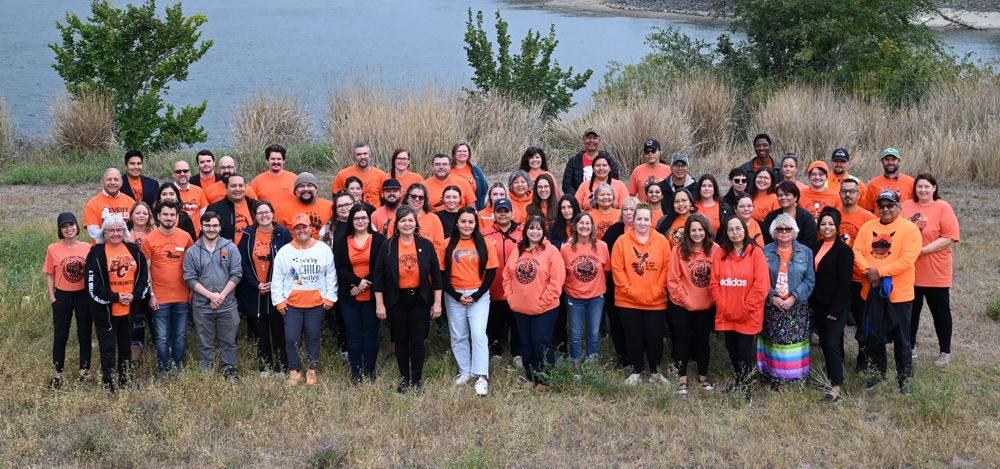Kukwstéc-kuc to each of you for standing with truth and love.
As we reflect on the National Day for Truth and Reconciliation and Orange Shirt Day, we honour the children who never came home, the Survivors who endured, and the generations who continue to carry the weight of these legacies. Your presence, your words, and your hearts remind us that healing is possible when it is shared.
Here at Tk̓emlúps, truth is not an idea, it is a lived reality. The discovery of unmarked anomalies at the former Kamloops Indian Residential School site affirmed what Survivors have long told us. Together, we continue to uphold their truths and reject denialism. We call on governments, churches, and all residents to face these truths with courage, humility, and respect, and to stand with us in honouring the children and Survivors.
Orange Shirt Day and the National Day for Truth and Reconciliation serve as solemn reminders of the enduring impacts of residential schools. They call upon all Canadians to reflect, engage with the Truth and Reconciliation Commission’s Calls to Action, and actively support the ongoing work of healing, justice, and reconciliation. We all share a responsibility to treat one another with compassion, understanding, and respect.
Hope and Healing
As a community, we walk together in the spirit of hope and healing. Each act of remembrance, each conversation, and each step we take on our Secwépemcúl’ecw brings us closer to restoring what has been lost and nurturing what remains strong within us. Healing is a journey that we walk together, guided by the strength of our Survivors, the wisdom of our Elders, and the resilience of our youth.
May hope be the light that carries us forward and may healing grow in our hearts and in our communities. Every step we take in truth, every story we share, and every moment of compassion strengthens our path toward a future rooted in justice, love, and respect.
Support is available if you or someone you love is impacted by the ongoing effects of residential schools or denialism. You are not alone.
Resources for factual information on Indian Residential Schools
- National Centre for Truth and Reconciliation (NCTR): http://nctr.ca
- Truth and Reconciliation Commission Final Report: http://nctr.ca
- Indigenous Foundations – UBC: http://indigenousfoundations.arts.ubc.ca
Support Services
- Le Estcwicwey Wellness Support Workers
- Stephanie Rose | 250-319-6024 | stephanie.rose@ttes.ca
- Kelly Therrien | 250-319-8937 | kelly.therrien@ttes.ca
- Indian Residential Schools Crisis Line: 1-866-925-4419 (24/7)
- KUU-US Crisis Line: 1-800-588-8717
- National Hope for Wellness Help Line: 1-855-242-3310 or www.hopeforwellness.ca
- First Nations Health Benefits (mental wellness and counselling): 1-855-550-5454
- BC Mental Health Support Line: 310-6789 (no area code)
- Q’wemstín Health Society: 250-314-6732
Message to Survivors and Youth
To our Survivors, your courage and wisdom continue to guide us.
To our Youth, may you grow up safe, strong, and sovereign, never forced to fight the same battles as your grandparents. You are the future of our people, and reconciliation is about ensuring that future is built on truth and justice.
Kukwstsétsemc for standing in truth, carrying love, and honouring the children and Survivors with every step forward. Together, we walk in strength and in spirit.
Kukwstéc-kuc re tmicw, re qelmúcw — we give thanks to the land and the people. Truth, hope, and healing will guide us forward.
Me7 yú7e te xwexwéyt
(That is all for now / With respect and care)
Kúkwpi7 Rosanne Casimir
